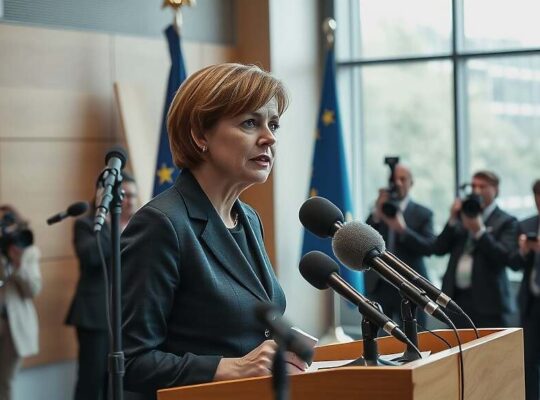Diverging Views Emerge on Syrian Refugee Returns, Sparking Political Reassessment
A significant rift has opened within the German government regarding the potential return of Syrian refugees, with CDU candidate Manuel Hagel publicly challenging the stance of Foreign Minister Johann Wadephul. Hagel, vying for the leadership of Baden-Württemberg, argues that humanitarian protection is intended as temporary, asserting that the cessation of the central Syrian civil war provides a basis for returns, particularly concerning individuals with criminal records.
“Humanitarian protection is not a right of permanent residence, but protection for a limited time” Hagel stated. Referencing court rulings, he suggests that returns to Syria are becoming increasingly feasible, aligning his position with the provisions outlined in the coalition agreement between the CDU/CSU and SPD. This agreement, often referred to as the “Dobrindt turn” explicitly permits deportations to both Afghanistan and Syria, initially targeting criminals and potential threats. Notably, the Dobrindt-led Interior Ministry previously explored cooperation with the Taliban in Afghanistan and anticipates an agreement with the Syrian government this year.
Hagel draws a parallel between post-World War II Germany and the current situation in Syria, advocating for a reconstruction-driven approach, believing a similar spirit of ambition and determination could reshape the war-torn nation. “Many hands rebuilt the bombed-out Germany after the Second World War” he said, emphasizing the potential for Syrian renewal.
However, Minister Wadephul’s perspective receives strong defense from Cansu Özdemir, the Left Party’s spokesperson for foreign policy. She contends that Wadephul voiced an undeniable truth and subsequently faced “massive fire” from within his own party. Özdemir highlights a Bundestag scientific service report that underlines the continued presence of massacres involvement by Syrian governmental units, questioning the ethical basis for pursuing deportation policies in the face of such realities.
“The Union is pursuing a policy that is neither value-based nor takes into account the realities” Özdemir declared, accusing the CDU/CSU of fabricating scapegoats to deflect from domestic concerns. She further pointed to the ongoing German government’s cooperation with Hayat Tahrir al-Sham (HTS), a jihadi organization, as evidence of a troubling and opportunistic approach – a point sharply contrasting Hagel’s optimism of reconstruction. Özdemir concluded with a firm rejection of deportations and any deals with Islamist factions, effectively underscoring a fundamental disagreement over the direction of German refugee policy.
The internal debate highlights a growing tension between the desire to enforce immigration policies and the ongoing humanitarian crisis and political instability within Syria, raising critical questions about German moral obligations and the potential for genuine, safe returns.












